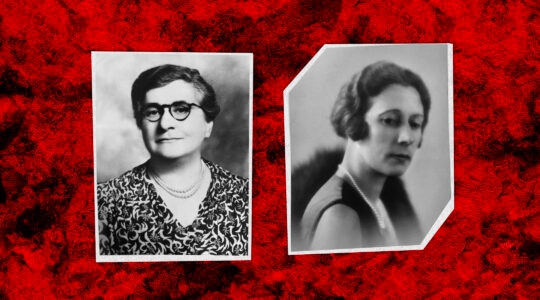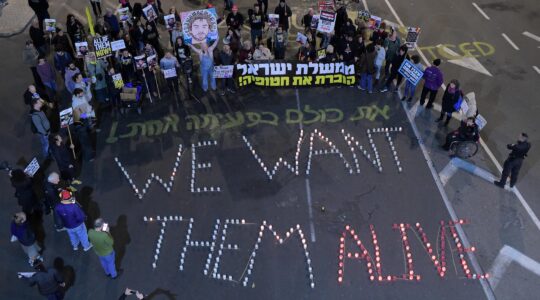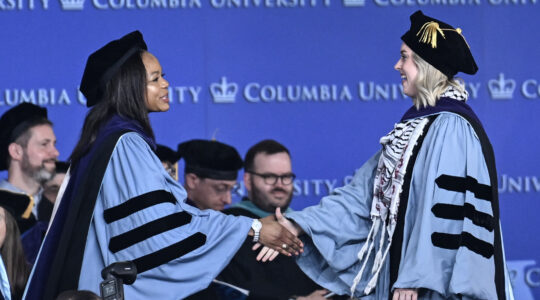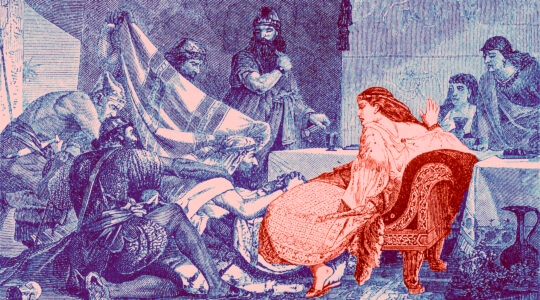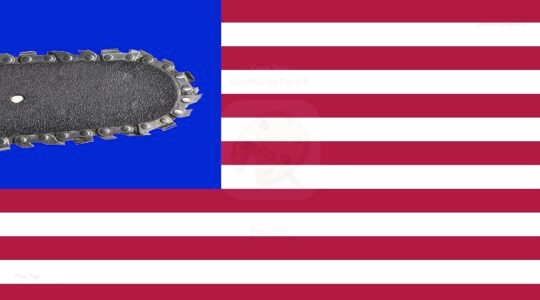As far as most American Jews were concerned, the recent student walkout from high schools to protest gun violence was a perfect example of integrating Jewish values and the notion of tikkun olam, or repairing the world, with education. After the Parkland massacre, the debate about guns has heated up, with student survivors from Marjory Stoneman Douglas High School in the lead, and much of the Jewish community is joining in the push for new gun legislation.
This is hardly surprising. Jews are among the least likely demographic groups to own firearms or hunt. They are also concentrated in urban/suburban areas where gun ownership is not normative and are among the most politically liberal slices of the population. That makes Jewish support for a whole range of gun control proposals — from the most anodyne about background checks that have wide support to more controversial ones that call for bans on certain types of weapons — pretty much a given.
But Jews also need to ponder whether their advocacy is merely adding fuel to the fire of a culture war that will not only continue to make any change in the laws unlikely but also contribute to further the bifurcation of a nation already badly split on a host of issues.
Attacks on the Parkland students — many of whom are Jewish — who have spoken out since the mass shooting are deeply disturbing. The willingness of so many kids to embrace political activism is heartening. But as Jewish kids, as well as their elders, speak out on the gun issue, they need to think about how their words impact the people they’d most like to influence: the vast numbers of Americans who embrace gun rights whose support they need.
While the passion of these students is commendable, far too many of the statements coming out of the mouths of the Parkland kids and others have been designed to demonize those who disagree with them on guns. You don’t have to be a supporter of the National Rifle Association to understand that calling them Nazis or responsible for the murder of children is the sort of statement that shuts down debate, rather than engendering it.
Gun rights advocates rightly point out that the proposals that angry students have demanded legislators pass or else, wouldn’t have prevented the mass shootings that have horrified the nation. That’s why the rhetoric we use is crucial. As one New York Jewish student wrote about her activism, the point was to “fight against guns,” which she described as “ugly” and as “deadly” as anti-Semitism. When gun owners listen to that kind of rhetoric or NRA members are being called child killers, what they hear is an attack on their rights, not a call for “common sense” reforms and that dooms any hopes for new legislation no matter which party controls Congress.
As was evident last week at the Capitol Hill rally on guns, where leading Democrats joined students, this is also an issue that is in no small measure partisan in nature rather than generational. Polls show millenials are actually less likely to support new restrictions than previous generations, though the media rarely gives teens who don’t support gun control much airtime. It also didn’t escape the notice of some Jews that the group that helped organize the school walkout was the Women’s March. The March is widely popular and is the engine of the mass protests that have driven the “resistance” to President Trump. But it is also fatally compromised by the support of its leaders for an anti-Semite like Louis Farrakhan and anti-Zionism. Individuals can prioritize their antipathy for guns over concerns about Jew hatred, but shouldn’t those who represent the Jewish community understand the dangers of such a decision?
Americans need a thoughtful debate about guns that will ponder whether anything short of a repeal of the Second Amendment would actually prevent more massacres. But if Jews are embracing what is, thanks to the rhetoric of some of the same kids we praise for their activism, not so much a crusade driven by national consensus as a culture war of city against country and blue states versus red, what we will be doing is not repairing the world in which we live but making it far worse.
Jonathan S. Tobin is editor in chief of JNS — the Jewish News Syndicate and a contributor to National Review. Follow him on Twitter at: @jonathans_tobin.
The New York Jewish Week brings you the stories behind the headlines, keeping you connected to Jewish life in New York. Help sustain the reporting you trust by donating today.
